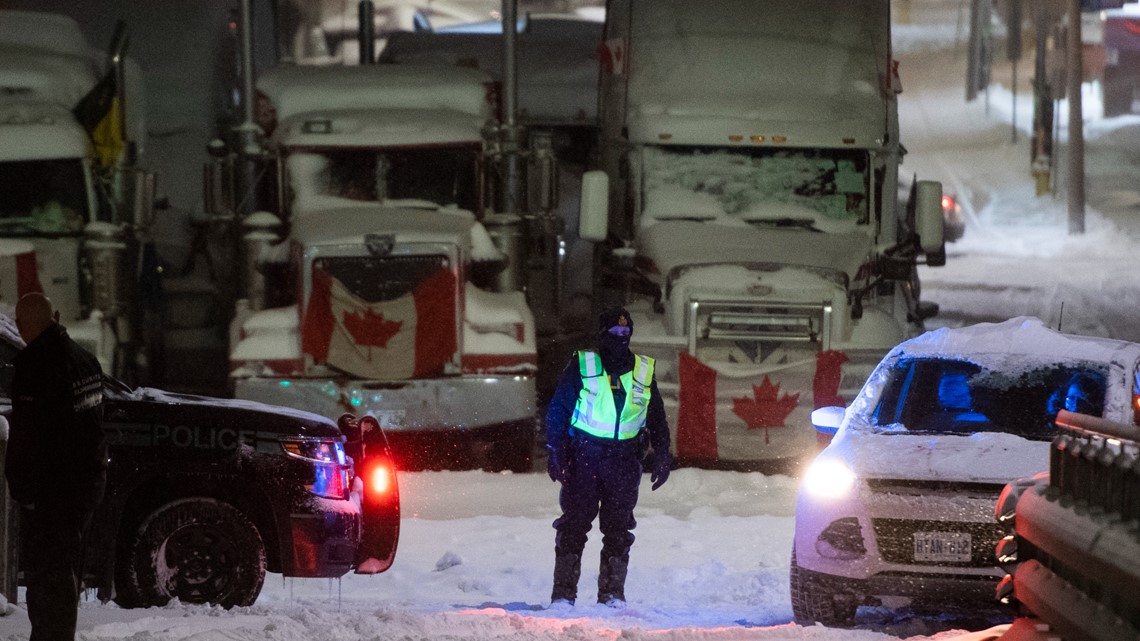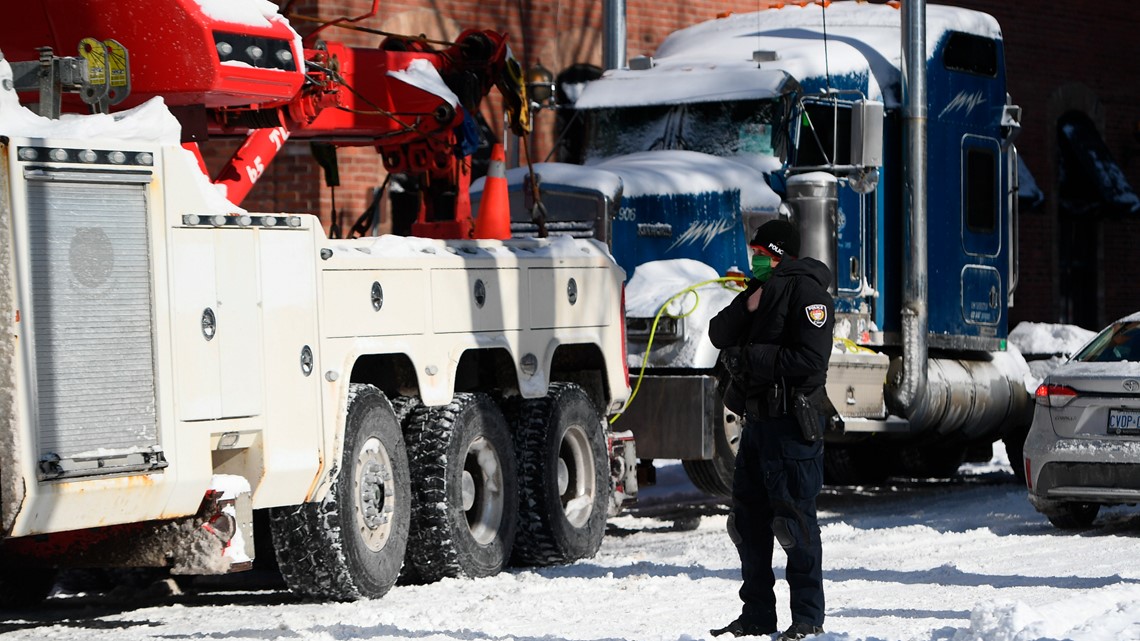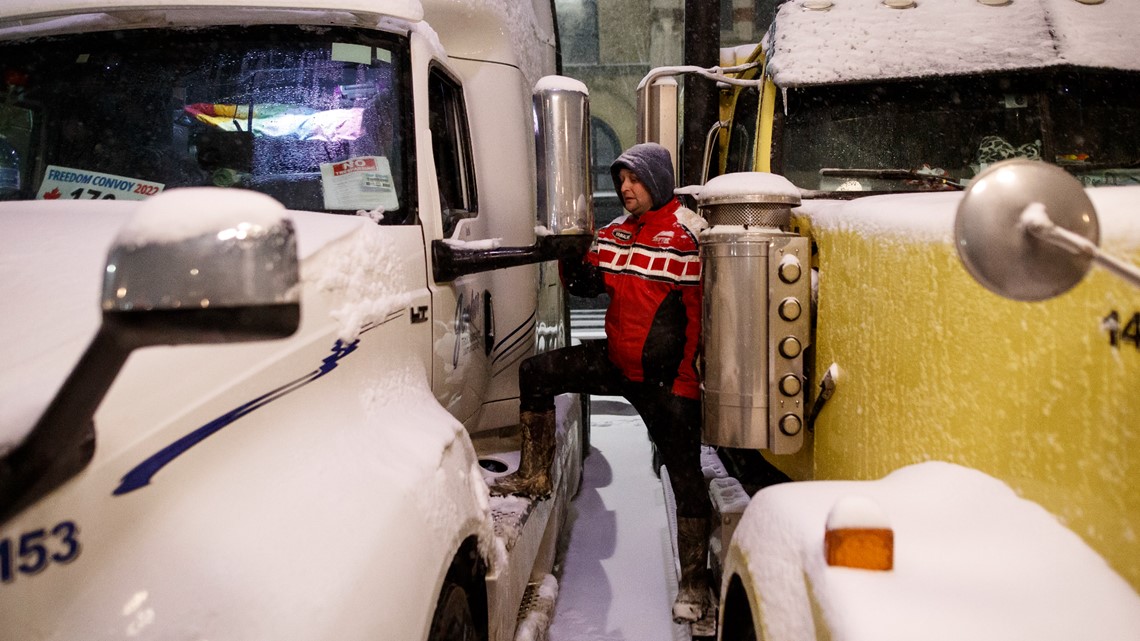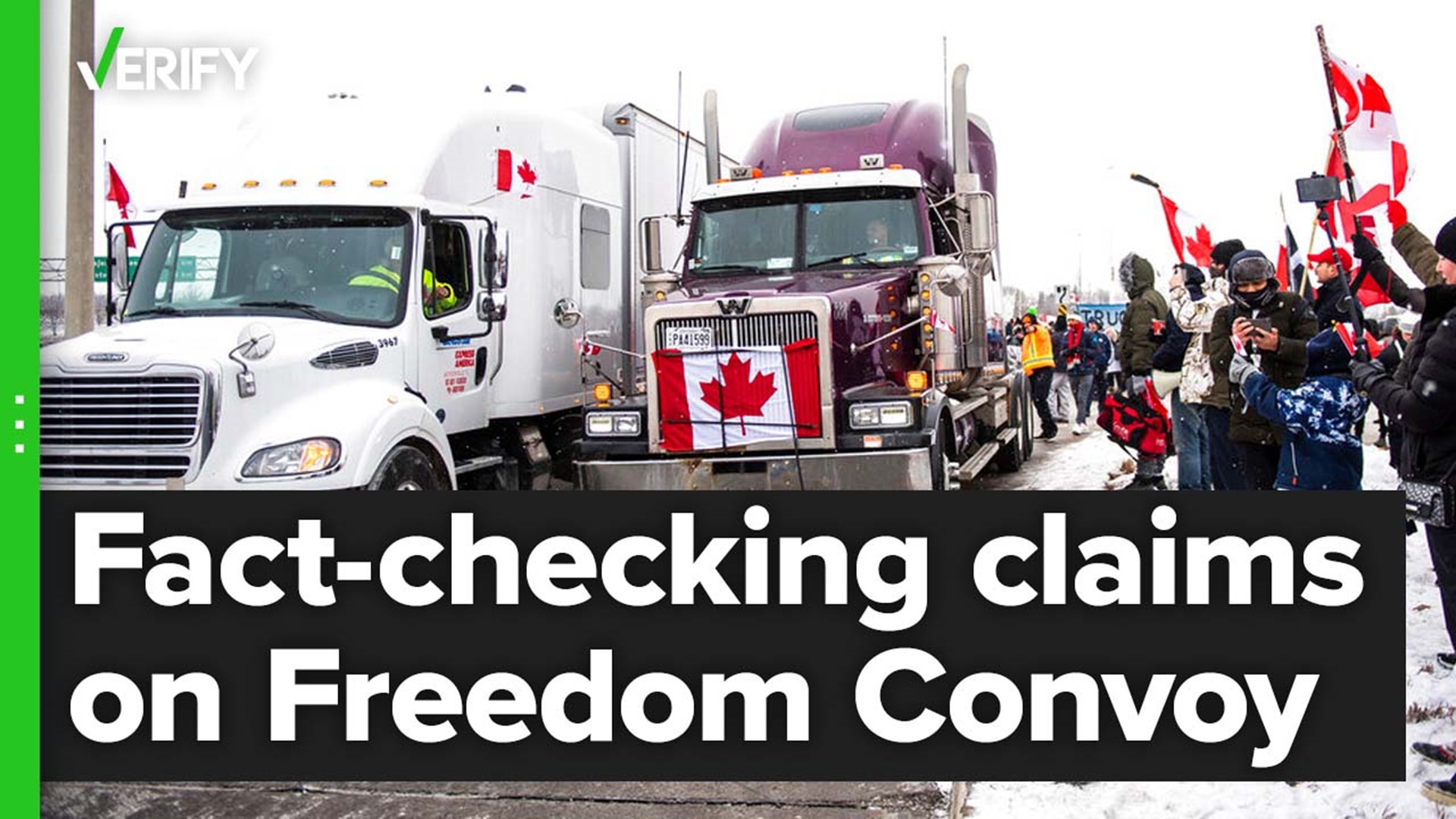OTTAWA, ON — Going nose-to-nose with protesters in some cases, police began arresting people and towing away vehicles Friday in a bid to break the three-week siege of Canada’s capital by hundreds of truckers angry over the country’s COVID-19 restrictions.
Hundreds of officers, some in riot gear and some carrying automatic weapons, descended into the protest zone and led demonstrators away in handcuffs through Ottawa’s newly snow-covered streets as holdouts blared their horns in defiance.
Scuffles broke out in places, and police repeatedly pushed the crowd back amid cries of “Freedom!” and the singing of the national anthem, “O Canada.”
Tow truck operators — wearing neon-green ski masks, with their companies' decals taped over on their trucks to conceal their identities — arrived under police escort and set to work removing the big rigs, campers and other vehicles parked bumper to bumper and shoulder to shoulder near Parliament.
Some protesters surrendered and a few trucks pulled out as the crackdown on the self-styled Freedom Convoy unfolded. And Ontario Premier Doug Ford said around midday: “There are indications we are now starting to see progress.”
But many protesters remained defiant and stood their ground.
“Freedom was never free,” said trucker Kevin Homaund, of Montreal. “So what if they put the handcuffs on us and they put us in jail?”
The capital and its paralyzed streets represented the movement’s last stronghold after three weeks of demonstrations and blockades that shut down border crossings into the U.S., caused economic damage to both countries and created a political crisis for Prime Minister Justin Trudeau. They also shook Canada's reputation for civility, with some foes of the unrest blaming the influence of the United States.


Over the past weeks, authorities had hesitated to move against many of the protesters, in part for fear of violence. The demonstrations have drawn right-wing extremists and veterans, some of them armed.
With police and the government facing accusations that they let the protests gain strength and spread, Trudeau on Monday invoked Canada’s Emergencies Act, giving law enforcement extraordinary authority to declare the blockades illegal, tow away trucks, arrest the drivers, suspend their licenses and freeze their bank accounts.
Ottawa police made their first move to end the occupation late Thursday with the arrest of two key protest leaders. They also sealed off much of the downtown area to outsiders to prevent them from coming to the aid of the protesters.
The emergency act also enabled law enforcement authorities to compel tow truck companies to assist. Ottawa police said earlier that they couldn’t find tow truck drivers willing to help because they either sympathized with the movement or feared retaliation.
As police worked to dismantle the siege, Pat King, a protest leader who has made white supremacist comments in the past, told truckers, “Please stay peaceful," while also threatening the livelihoods of the tow truck operators.


“You are committing career suicide,” King warned on Facebook. “We know where the trucks came from.”
King himself was later arrested by officers who surrounded him in his car.


Ottawa police had made it clear for days that they were preparing to end the protest and remove the more than 300 trucks at any moment. On Friday, even as the operation was underway, police issued another round of warnings via social media and loudspeaker, offering protesters one more chance to leave and avoid arrest.
Some locked arms instead as officers formed a line to push them back.
“This is not Canada. We don’t need a split country!” one woman yelled.
Dan Holland, a protester from London Ontario, packed up his car, which was parked amid the trucks, as police closed in. “I don’t want to get beat up by this police,” he said.
Children bundled up in coats and hats stood amid the crowd. Police said that the protesters had put the youngsters in the middle in the confrontation and that the youngsters would be brought to a place of safety.
The two protest leaders arrested a day earlier were due in court Friday. Among the charges: mischief and obstructing police.
The occupation infuriated many Ottawa residents, who complained of being harassed and intimidated on the streets and obtained a court injunction to stop the truckers' incessant honking of their horns.
The demonstrations around the country by protesters in trucks, tractors and motor homes initially focused on Canada’s vaccine requirement for truckers entering the country but soon morphed into a broad attack on COVID-19 precautions and Trudeau’s government.
Trudeau portrayed the protesters as member of a “fringe” element, and Canadians have largely embraced the country’s COVID-19 restrictions, with the vast majority of the population vaccinated, including an estimated 90% of the nation’s truckers. Some of the vaccine and mask mandates imposed by the provinces are already falling away rapidly.
The biggest border blockade, at the Ambassador Bridge between Windsor, Ontario, and Detroit, disrupted the flow of auto parts between the two countries and forced the industry to curtail production. Authorities lifted the siege last weekend after arresting dozens of protesters.
The final border blockade, in Manitoba, across from North Dakota, ended peacefully on Wednesday.
The protests have been cheered on and received donations from conservatives in the U.S.
___
Gillies reported from Toronto.

